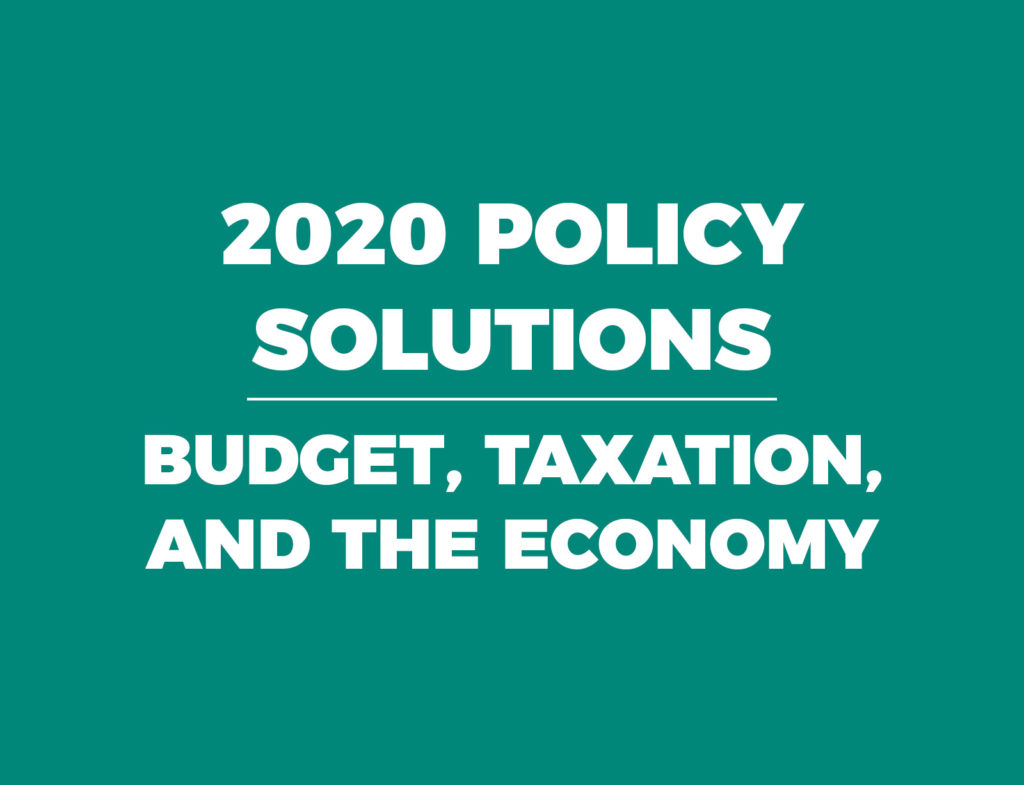Introduction
Technologies widely available on smartphones and over the internet have given rise to new marketplaces and platforms by which people can obtain and offer goods and services. Existing providers in the traditional marketplaces naturally complain about the new competition. Too often, their answer is to saddle the new marketplaces with all the red tape afflicting the older marketplaces.
For example, protectionist food truck regulations needlessly prevent mobile restaurant offerings and food diversity. Local entry regulations and public service restrictions stifle business opportunities in cities and counties, and worse, they can vary wildly from one jurisdiction to the next. Outdated zoning, rent controls, and other regulations are preventing people in high-demand urban settings from providing affordable housing arrangements, such as adding accessory dwelling units (ADUs) like granny flats and garages converted into living spaces.
Those who thwart market innnovations might as well try to replace smartphones and the internet with rotary-dial telephones and library card catalogs. As Duke University professor Michael Munger, author of “Tomorrow 3.0: Transaction Costs and the Sharing Economy,” put it: “The platform revolution is here.”
Platforms are not just businesses. They’re new ways of bringing consumers and sellers together. They’re coming about, in part, because of significant reductions in what economists call “transaction costs.” A transaction cost is the economic cost of conducting a trade — not just monetary costs like sales taxes but also time searching, uncertainty, hassle, etc.
For example, taxis in many cities require expensive licenses and are often limited to a certain number. Hotel room stays are heavily regulated and involve several layers of taxation. Going shopping involves time driving, finding parking, dealing with mall patrons, and maybe not even finding what you need.
In the sharing economy, platforms significantly cut those costs, so much so that transactions can occur that otherwise would never have occurred or even been imagined. Ride-sharing applications such as Uber and Lyft connect potential riders with drivers with minimal waiting. Home-sharing apps such as Airbnb connect potential guests with a wide variety of hosts. Online retailers such as Amazon let consumers find a needed item without even leaving the house.
Fast-emerging platforms worry local and state officials about unregulated providers. Still, policymakers must show restraint. Not all of them will succeed. But ill-conceived regulations can persist and have ongoing negative effects on local economies, consumers, and entrepreneurs.
Key Facts
- In June 2015, the Federal Trade Commission (FTC) held a workshop on the sharing economy to examine the regulatory, competitive, consumer protection, and other economic issues connected to emerging marketplaces, receiving over 2,000 public comments in response. The FTC recommended a cautionary approach to regulation, “only when there is evidence regulation is needed,” “narrowly tailored,” and “no more restrictive than necessary.”
- Platforms like Uber and Airbnb are often regulated by their own users, with buyers and sellers rating each other. Users are more likely to trust ratings from users like themselves than decisions made by unknown bureaucrats. Trust is a key component of how platforms work. To stay viable, they have to attract and keep buyers and sellers.
- Tight restrictions on home-sharing imposed by Asheville and Raleigh led to the North Carolina General Assembly passing a law in 2019, limiting the ability of local governments to regulate properties subject to the state Vacation Rental Act.
- In 2019, Raleigh leveled some of the toughest regulations in the country on e-scooters that riders rent via smartphone apps, causing existing providers to leave the city.
- Under threat of a lawsuit in 2018, Carolina Beach scrapped its prohibitions on food trucks from out of town or those not affiliated with existing brick-and-mortar restaurants that had been in business for at least a year.
- A highly restrictive law passed in California in 2019 struck at the business models of many platforms (and freelance writing in general) by defining most independent contractors as company employees and, therefore, subject to the full scope of employment regulations. The new annual payroll expenses imposed by this law have been estimated at $6.5 billion.
- City-imposed wait times on ride-sharing apps in Barcelona, Spain, forced Uber and competitor Cabify to suspend service there in 2019, costing an estimated 3,000 jobs.
Recommendations
- Remove outdated regulations shown to prevent emerging innovations and resist a rush to regulate emerging consumer options and new ideas. With emerging platforms and ideas, policymakers should still adhere to the wisdom of the Hippocratic Oath: “First, do no harm.”
- Correct regulatory imbalances not by piling burdens on emerging marketplaces, but by lessening burdens on existing ones. Policymakers should be attentive to persistent regulatory obstacles to both existing enterprises and emerging innovations.



